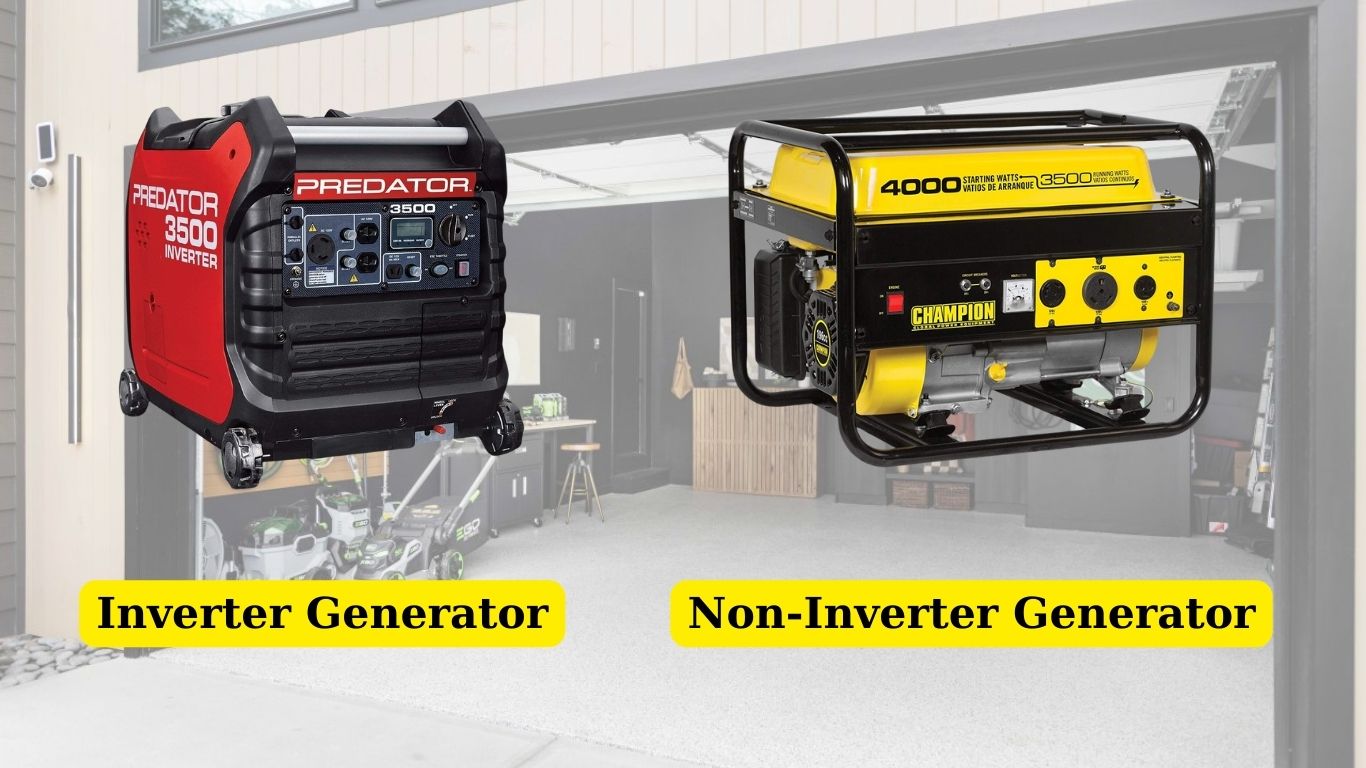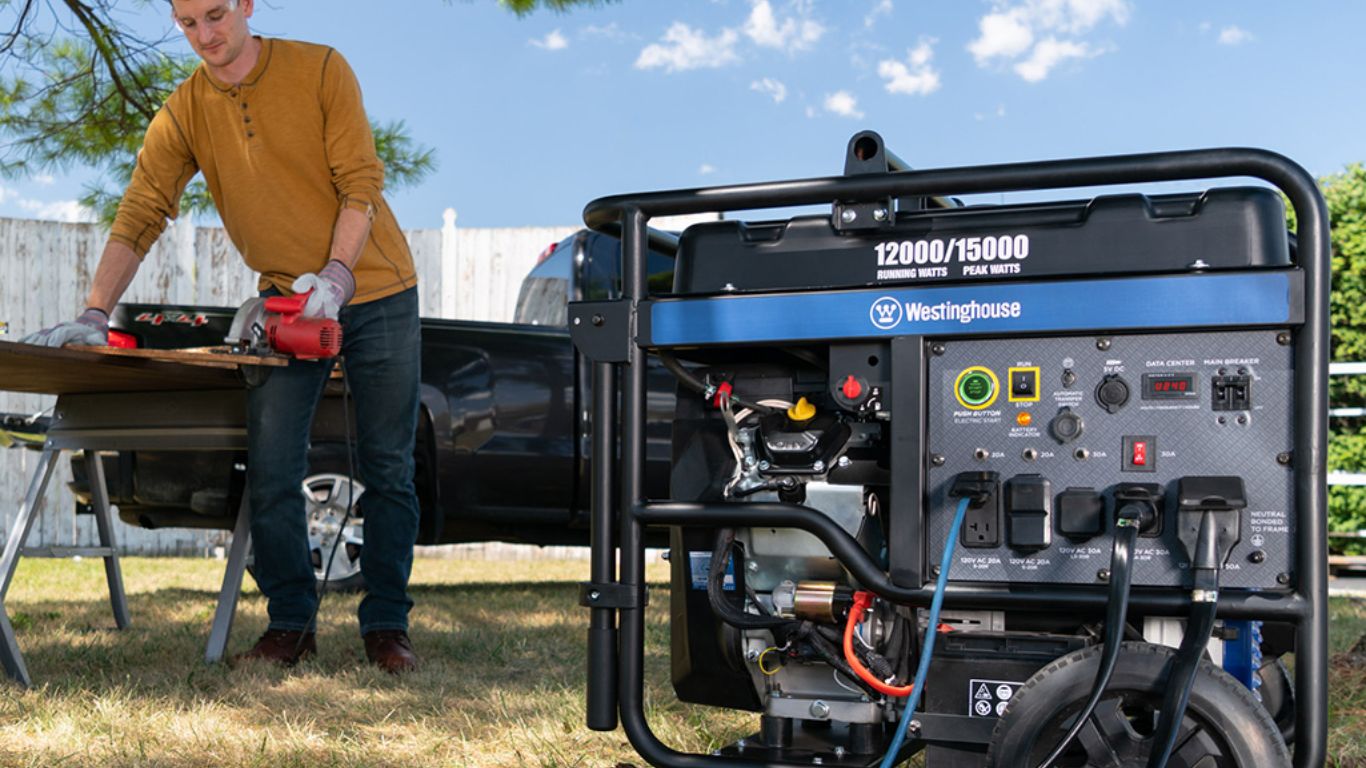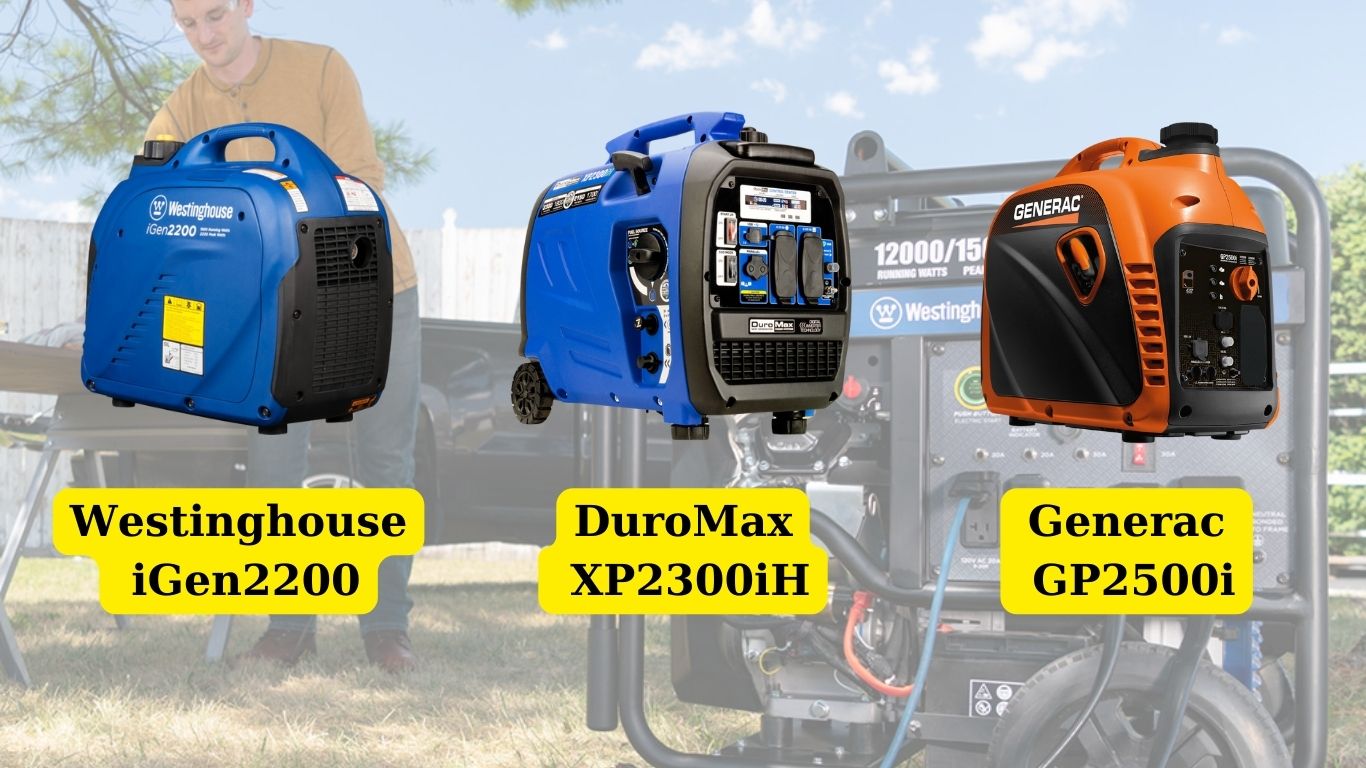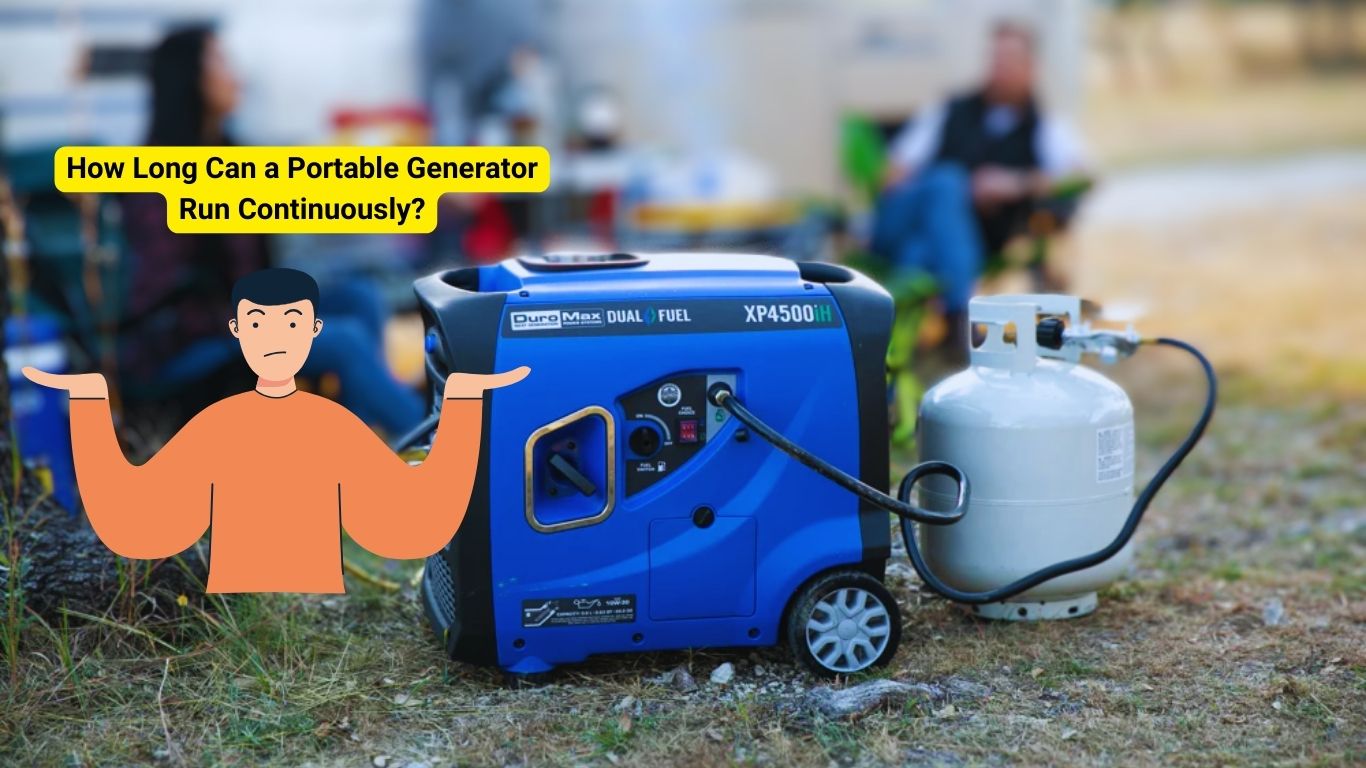Portable generators are essential tools for managing brief power disruptions as well as vital during prolonged grid outages. However, the mere possession of a generator isn’t the whole answer. Once your generator is fueled and ready, an important question emerges: “How long can a portable generator run continuously?” Determining the continuous operational duration of a portable generator is complex, with multiple influencing factors. In this discussion, we’ll explore these factors to offer a reliable estimate of how long your generator can maintain power to keep your lights on.
- Definition and Common Uses: A portable generator converts fuel into electrical power, serving as an independent power source when access to main electricity is unavailable. Commonly, it is used to provide backup power during electrical outages, power tools on construction sites, and run appliances in remote areas.
- Significance of Runtime in Different Situations: The length of time a generator can run is crucial for its effectiveness in emergency situations, such as prolonged power outages or when powering vital medical devices. For businesses, it affects the ability to maintain operations during emergencies.
- Summary of Elements Affecting Runtime: The sustained operational period of a portable generator is influenced by various factors such as the type of fuel used, the size of the generator, its maintenance state, and the electrical load it carries. Gaining a deep insight into these elements can help users improve their generator’s runtime and guarantee its reliability in critical times.
Elements Influencing the Run Time of Portable Generators
Various factors impact the runtime, making it essential to understand them thoroughly. This knowledge is crucial for selecting the appropriate generator to maximize its use.

1. Fuel Type and Tank Size:
The fuel type and tank size significantly influence the generator’s runtime. Gasoline-powered generators typically operate for shorter durations compared to those using diesel or propane due to the lower energy density of gasoline. However, while larger tanks can extend operation times, they also make the generator heavier and larger.
2. Generator Type (Inverter Vs Non-Inverter):
In contrast to non-inverter generators that operate at a steady speed, generate considerable engine noise and use more fuel, inverter generators are built to run at variable speeds. This design enhances their fuel efficiency and results in lower noise levels compared to their non-inverter counterparts.
3. Electric Demand:
Additionally, the runtime will be affected by the load on your generator. This results in a higher power demand for larger appliances such as refrigerators and air conditioners, which will deplete the fuel tank more quickly than smaller devices like laptops or smartphones.
Standard Operating Durations for Portable Generators

So, what should you anticipate in terms of runtime from your portable generator? Here are some basic guidelines:
- Non-inverter gasoline generators: 4-8 hours
- Inverter gasoline generators: 8-12 hours
- Diesel generators: 12-24 hours
- Propane generators: 8-16 hours
For small to medium-sized portable generators, the expected runtime ranges under usual load conditions are as follows:
- 2,000-watt generator: 4-6 hours
- 3,000-watt generator: 6-8 hours
- 4,000-watt generator: 8-10 hours
How to Make Your Portable Generator Last Longer
Understanding the factors at play is crucial, but there are actions you can take to extend the runtime of your portable generator.
- Proper Maintenance: It’s vital to keep your generator in good working order, which includes frequent oil changes. Failing to maintain your generator can reduce both its efficiency and lifespan.
- Utilizing Various Fuel Options: Employing a dual or tri-fuel generator allows for the use of different fuels, and switching or augmenting fuel tanks can help prolong runtime.
- Load Management: By regulating appliance usage and prioritizing critical devices powered by the generator, you can maximize the operational hours of your generator.
Grasping the Runtime of Your Generator Can Enhance the Efficiency of Your Mobile Detailing Operations
Runtime is essential for mobile detailers as it dictates how far a portable generator can travel, optimizing business operations. This ensures that they are well-prepared with sufficient power for each detailing job, allowing them to perform each task effectively and thoroughly. This can assist you in the following ways:
- Improved job scheduling: Understanding your generator’s runtime helps schedule detailing jobs more efficiently, ensuring there is ample power to complete all tasks without disruption.
- Selecting suitable equipment: Knowing the output power and runtime of your generator allows you to carefully choose the appropriate equipment for each job, ensuring you have enough power to complete the work effectively.
- Running time: This awareness helps them know how long the generator has been running, thus minimizing the risk of an unexpected work halt due to the generator running out of power.

The most favored portable generator models for such services include:
Westinghouse iGen2200: This model is a 2,200 running watt inverter generator, noted for its compact design, offering up to 12 hours of.
DuroMax XP2300iH: This dual-fuel inverter generator delivers 2,300 watts of power and can run for up to 13 hours on either gasoline or propane.
Generac GP2500i: A compact inverter generator offering 2,500 watts of power with a runtime of up to 10 hours.
See more at Best Generator For Mobile Detailing
Practical Considerations and Safety Considerations
Always prioritize safety when using a portable generator. Below are some safety tips and practical guidelines to help ensure everyone’s safety while operating a portable generator.
- Ensure the generator is situated in an area with good ventilation and never positioned close to windows or doors.
- Store fuel in a safe, easily accessible location and refill and maintain it as per the manufacturer’s instructions.
- Regularly service your generator; follow any guidelines for addressing wear and tear or necessary repairs.
Conclusion
In summary, grasping the runtime is vital for maximizing its use. Consider the various factors that influence runtime, choose the appropriate generator, and implement practical strategies to extend runtime while maintaining safe operations. After all, staying powered and prepared is essential. Whether you’re a mobile detailer or a homeowner, a dependable portable generator can provide the necessary electricity to complete your tasks effectively.
Aurelio Mason is a leading authority in the development of generators for mobile detailing, with a keen focus on enhancing energy efficiency and reducing environmental impact. He has a decade of experience in electrical engineering and holds a Ph.D. from Stanford University. Aurelio’s innovations have led to breakthroughs in portable power technology, making mobile detailing services more accessible and sustainable. He has received several awards for his contributions to green technology in the automotive industry. Aurelio is based in Austin, Texas, where he oversees the R&D division at Mobile Power Innovations, striving to push the boundaries of what’s possible in mobile auto care solutions.

